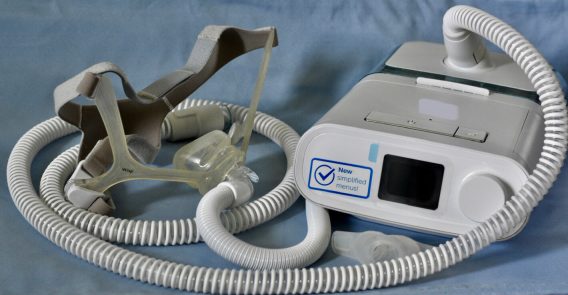FDA: Nearly 350 Deaths Linked to Recalled Philips CPAP Machines
Editors carefully fact-check all Consumer Notice, LLC content for accuracy and quality.
Consumer Notice, LLC has a stringent fact-checking process. It starts with our strict sourcing guidelines.
We only gather information from credible sources. This includes peer-reviewed medical journals, reputable media outlets, government reports, court records and interviews with qualified experts.

Nearly 350 patient deaths have been linked to recalled Philips respiratory devices, says a report that the U.S. Food and Drug Administration published last week. The agency has received more than 98,000 medical device reports, or MDRs, related to Philips’ BiPAP, CPAP and ventilator machines since April 2021.
“The vast majority (93%) of the approximately 99,000 MDRs filed since April 2021 up to and including December 2022 are alleged technical malfunctions that do not involve serious injury,” Philips said in a statement.
Between Nov. 1 and Dec. 31 last year, the FDA received a significant influx of MDRs related to the machines. The agency received more than 8,000 MDRs including 82 deaths during that period.
The new report brings the total of patient deaths to 346. The rate of death reports per month has increased with each reporting period since Philips issued recalls in June 2021 and October 2022.
“The FDA’s in-depth review and analysis of these new MDRs will include examining the possible reasons for the increased number of reports,” the FDA said in its safety communication update.
Respiratory device injuries reported to the FDA include cancer, pneumonia, asthma, infection, headache, cough, difficulty breathing, dizziness, chest pain and others. The FDA says MDRs are helpful, but the agency cannot verify if the devices caused every reported event.
Philips Conducts Safety Studies
In December 2022, Philips shared results from studies it conducted on the majority of the devices included in the recalls. Most of the recalled devices come from the first-generation DreamStation product family, says Philips.
Philips originally issued the recalls over lab reports that confirmed the PE-PUR sound abatement foam in the devices could degrade and release toxic gasses and particles.
According to the company, the tests suggest the faulty foam is “unlikely to result in an appreciable harm to health in patients.” Philips also said that volatile organic compounds from the foam produced “no appreciable harm to health.”
During a call with reporters late last year, Jan Kimpen, M.D., Philips’ chief medical officer, was asked about the MDRs and death reports. Kimpen said the company “could not connect any of the complaints to the use of these devices.”
Philips CPAP Users File Cancer Lawsuits
Soon after Philips issued the recall, device users began filing Philips CPAP lawsuits. Plaintiffs claim the devices caused them to develop cancer, respiratory issues and other serious conditions.
As of Feb. 6, 2023, the U.S. Judicial Panel on Multidistrict Litigation reports 272 CPAP lawsuits have been consolidated in multidistrict litigation in Pennsylvania. This does not include claims filed in state courts that are not a part of the MDL.
Philips is also facing class-action lawsuits in addition to personal injury claims. The class actions seek reimbursement for the cost of a new CPAP machine.